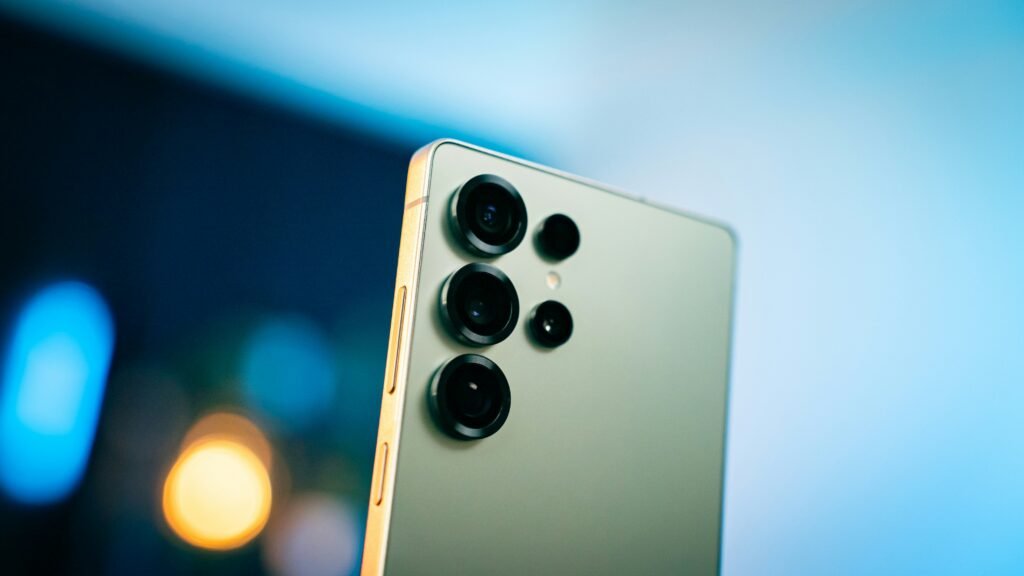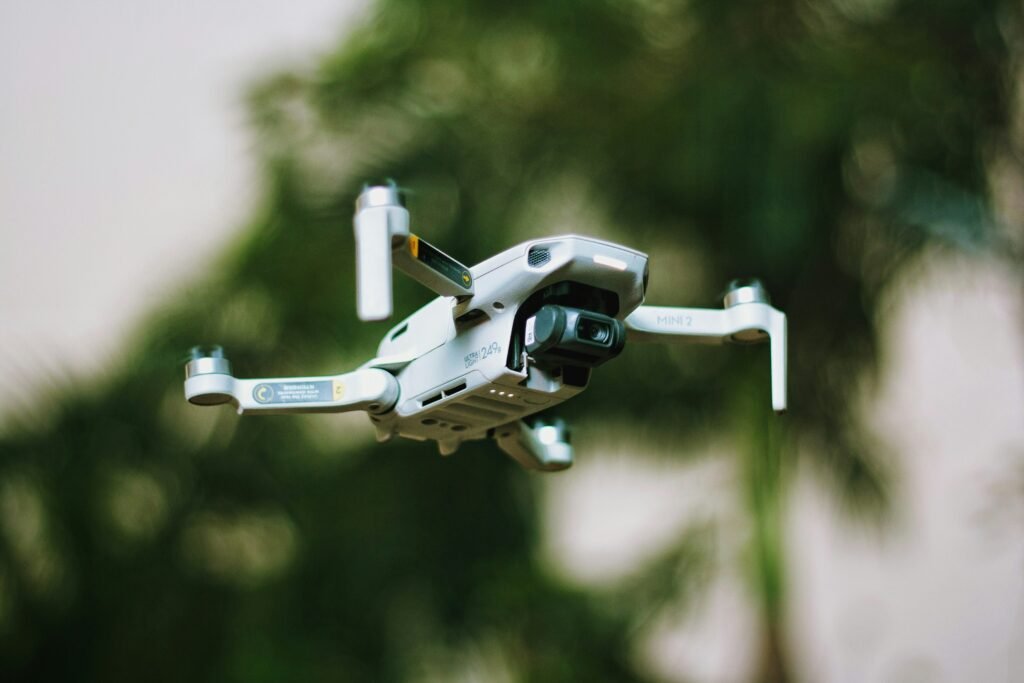honor smart phone
Introduction to Honor Smartphones
Honor, a consumer electronics brand, originally emerged as a subsidiary of Huawei in 2013, focusing on producing budget-friendly smartphones that cater to a younger demographic. Over the years, the brand has evolved significantly, establishing itself as a prominent player in the global smartphone market. In 2020, Honor was sold by Huawei, allowing the brand to operate independently and shift its focus towards technological innovation, particularly in the realm of artificial intelligence (AI).
The brand’s commitment to incorporating advanced technologies is notable, with AI playing a crucial role in enhancing user experiences across its devices. Honor smartphones leverage AI to optimize performance, improve photography capabilities, and personalize user interactions. This integration not only enhances device functionality but also aligns with modern users’ expectations for smarter, more intuitive technology.
Honor targets a diverse audience, predominantly millennials and Gen Z, who prioritize value for money, style, and advanced features in their devices. The unique selling propositions of Honor smartphones include cutting-edge designs, competitive pricing, and the latest technological advancements. Honor aims to provide its users with functionality that rivals that of flagship devices, making it a compelling choice for consumers seeking high-quality smartphones within a budget.
In terms of market positioning, Honor has effectively tapped into the growing demand for smartphones equipped with AI capabilities, helping users navigate their daily lives more efficiently. By continuously focusing on the seamless integration of AI into its products, Honor aims to differentiate itself from competitors, ensuring that its smartphones remain relevant in an ever-evolving landscape. The journey of Honor as a brand reflects its adaptability and commitment to innovation, setting the stage for a promising future in the smartphone industry.
Understanding Artificial Intelligence (AI)
Artificial Intelligence (AI) refers to the simulation of human intelligence processes by machines, particularly computer systems. This encompasses learning, reasoning, problem-solving, perception, and language understanding. The concept of AI dates back to the mid-20th century, when computer scientists first began to explore the potential of creating intelligent machines. Pioneering work was conducted by figures such as Alan Turing, who proposed the Turing Test as a criterion for determining a machine’s ability to exhibit intelligent behavior equivalent to that of a human.
Over the decades, AI has evolved considerably, influenced by advances in technology and increasing data availability. The history of AI can be divided into different phases: from its early symbolic reasoning methods, which focused on rule-based systems, to modern AI techniques utilizing machine learning and deep learning algorithms. These newer approaches allow computers to learn from large datasets, improving their ability to make predictions and decisions based on learned information.
There are several types of AI, broadly categorized into two groups: narrow AI and general AI. Narrow AI, also known as weak AI, is designed to perform specific tasks, such as voice recognition or image classification. This is the form of AI most commonly utilized in smartphones today, including Honor devices, where it enhances functionalities such as camera optimization, virtual assistants, and personalized user experiences. Conversely, general AI, or strong AI, seeks to emulate human cognitive abilities across a wide range of tasks. Although this remains a theoretical construct, it illustrates the potential future advancements in AI technology.
In summary, understanding the definition, history, and types of artificial intelligence is essential for appreciating its practical applications in modern technology, particularly in Honor smartphones. The integration of AI allows these devices to better meet user needs and adapt to individual preferences, demonstrating the ongoing significance of this intriguing field.
The Role of AI in Honor Smartphones
Artificial Intelligence (AI) has become a cornerstone in the development of modern smartphones, particularly in Honor’s lineup. By integrating AI technologies, Honor smartphones are designed to enhance user experience across various functionalities. One of the most notable applications of AI in these devices is in camera enhancements. Honor smartphones utilize AI algorithms to recognize scenes and subjects, automatically adjusting settings to optimize image quality. This results in clearer photographs, even in challenging lighting conditions, allowing users to capture stunning images effortlessly.
In addition to camera capabilities, AI plays a significant role in performance optimization. Honor smartphones are equipped with AI-powered performance management systems that learn user behavior patterns. This analysis allows the device to allocate resources efficiently, ensuring that apps run smoothly and responsively. As a result, users enjoy a seamless experience without experiencing lag or interruptions during their daily tasks.
Battery management is another area where AI technologies contribute substantially. Honor smartphones employ AI algorithms to monitor usage habits and predict battery consumption. This allows the device to optimize power management, extending battery life for users. Through adaptive battery features, the smartphone can prioritize power for the most frequently used apps while restricting background processes, thus ensuring longevity without compromising performance.
Furthermore, the personalization features driven by AI enhance the overall user interface. By analyzing user preferences, Honor smartphones can suggest relevant applications, adjust settings, and tailor the overall interface to match individual needs. This user-centric approach not only makes navigation intuitive but also fosters greater engagement with the device. Overall, the integration of AI in Honor smartphones significantly enriches the user experience, making technology more accessible and enjoyable.
AI Camera Features in Honor Phones
The integration of artificial intelligence (AI) technology in Honor smartphones has significantly transformed the landscape of mobile photography. One of the standout features is AI scene recognition, which enables the camera to automatically identify and optimize settings based on the scene in view. This function allows users to capture high-quality images effortlessly, as the device intelligently adjusts parameters like exposure, color saturation, and contrast. By recognizing elements such as landscapes, people, or food, Honor phones ensure that each shot is taken under ideal conditions, enhancing the overall photographic experience.
Furthermore, the image processing capabilities powered by AI greatly enhance the clarity and quality of photos. Honor smartphones employ advanced algorithms that assess each image, allowing for improved detail and sharper results. This is particularly evident in low-light photography, where AI technology reduces noise while preserving important image details. Users can capture stunning pictures in dim environments without the usual compromises in quality that traditional smartphones might face, thus making night photography more accessible.
Honor has also placed a strong emphasis on portrait enhancements using AI-driven features. The software algorithms analyze facial structures and backgrounds, enabling users to take flattering portraits with a natural bokeh effect. AI assists in separating the subject from the background, which produces professional-quality photos that are ideal for social media sharing. For instance, a typical family gathering can be transformed into memorable portraits that showcase stunning detail and depth while retaining a soft focus on the background.
Overall, the innovative AI camera features in Honor smartphones not only simplify the photography process but also empower users to create visually appealing content. Through scene recognition, enhanced image processing, and portrait optimization, AI elevates the mobile photography experience to new heights.
AI Performance Optimization
Honor smartphones have increasingly integrated artificial intelligence to enhance their device performance significantly. The core focus of this optimization revolves around efficient resource allocation, which ensures that the smartphone operates smoothly under various conditions. By utilizing AI algorithms, Honor can intelligently manage CPU and GPU resources, allowing devices to adapt to user demands dynamically. For instance, when a user opens a resource-intensive application, the smartphone can automatically prioritize the necessary resources, leading to improved responsiveness and performance.
Additionally, app management is a critical area where AI contributes to overall enhanced performance. Honor devices employ machine learning to analyze usage patterns, which allows the system to learn which applications are frequently used. Consequently, these applications are preloaded into memory for quicker access, reducing load times significantly during use. This proactive approach to app management not only facilitates a seamless user experience but also contributes to greater battery efficiency, as resources are utilized more judiciously.
Honor smartphones are also equipped with smart prediction capabilities powered by AI. This feature anticipates user needs and suggests actions based on behavior patterns. For example, if a user regularly communicates with specific contacts at certain times, the device can present those contacts prominently when the expected time approaches. Such predictive functionalities further streamline multitasking, as users can switch between tasks more finel and avoid disruptions.
As artificial intelligence continues to evolve, the ongoing advancements in AI performance optimization within Honor smartphones indicate a clear commitment to enhancing user experience. With innovative features such as resource allocation, app management, and smart predictions, these devices provide a notable improvement in multitasking capabilities and overall performance, ultimately solidifying Honor’s position in the competitive smartphone market.
User Data Protection and AI
As artificial intelligence (AI) continues to evolve, manufacturers like Honor are increasingly integrating it into their smartphones to enhance user experience. However, this raises important questions regarding user data protection and privacy. Honor emphasizes a robust approach to data security, balancing the benefits of AI with the need to safeguard personal information. The implementation of AI technologies in Honor smartphones often involves processing large amounts of user data to improve functionality, personalize services, and enhance security features.
Honor has developed specific protocols aimed at ensuring that the data collected through its devices are utilized ethically and securely. For instance, data collected for AI-driven functions is typically anonymized and aggregated, minimizing the risk of exposing individual user information. Furthermore, Honor employs encryption technologies designed to protect data in transit and at rest, ensuring that any personal information remains secure against unauthorized access. This approach reflects Honor’s commitment to user privacy, maintaining consumer trust while harnessing the potential of AI.
The ethical implications of AI usage are paramount in discussions surrounding user data protection. Consumers are becoming increasingly aware of the privacy risks associated with AI technologies, and therefore, companies like Honor must establish transparent policies that inform users about the data collection and usage practices. Honor has taken steps to make this information readily available, allowing users to make informed decisions about their data privacy settings. This transparency not only helps to build trust but also encourages users to engage more openly with AI features offered by Honor smartphones, knowing their information is treated with care.
In summary, Honor’s commitment to protecting user data while implementing AI technologies showcases a thoughtful approach to balancing innovation with privacy. By enhancing their data security measures and maintaining transparency, Honor seeks to uphold consumer trust in an era where AI’s role is ever-increasing.
Comparative Analysis of AI in Honor vs. Competitor Smartphones
As the smartphone market becomes increasingly competitive, the integration of artificial intelligence (AI) has emerged as a critical differentiator among various brands. Honor smartphones, in particular, have leveraged AI technologies to enhance user experience, offering features that rival those of other leading competitors. This analysis examines the strengths and weaknesses of Honor’s AI functionalities in comparison to other smartphone manufacturers, shedding light on what distinguishes Honor in this evolving landscape.
One of the commendable strengths of Honor smartphones is their use of AI for camera optimization. With features such as AI scene recognition and advanced image processing, Honor devices automatically adjust settings according to the specific scene being captured. This not only improves the image quality but also simplifies the photography process for consumers by reducing the need for manual configurations. In comparison, while competitors like Samsung and Apple do offer similar functionalities, Honor’s implementation appears more intuitive and user-centric, catering to both novice and experienced photographers.
However, it is crucial to note that while Honor showcases significant advancements in AI-driven camera technology, other brands have also made noteworthy strides in distinct areas. For instance, many competitor smartphones have invested heavily in AI for performance optimization, including adaptive battery management and enhanced multitasking capabilities. Brands like Google integrate sophisticated AI algorithms that analyze user behavior to optimize power consumption and resource allocation, providing a seamless user experience.
Moreover, Honor’s AI capabilities in voice recognition and virtual assistant functionalities are still developing when benchmarked against leaders such as Apple’s Siri or Samsung’s Bixby. The competitors have cultivated a more robust ecosystem of AI applications that are better integrated into their overall user interfaces. Therefore, while Honor smartphones are indeed advancing in AI functionality, gaps remain, particularly in voice interactivity and ecosystem integration.
Ultimately, Honor’s focus on AI innovations presents a compelling case for users looking for enhanced camera experiences, though it must continue to evolve alongside competitors to maintain its competitive edge in the market.
Real User Experiences and Testimonials
As the integration of artificial intelligence in smartphones becomes more prevalent, users of Honor smartphones have shared a variety of feedback regarding their experiences with the AI features. These testimonies provide insightful glimpses into the practical applications of AI technology in day-to-day use. Many users emphasize the benefits of the AI-enhanced camera capabilities, which have transformed the way they capture and edit images. The AI scene recognition feature, for instance, allows the device to automatically optimize settings based on the detected environment, resulting in stunning photos with minimal effort. Users have reported that this functionality is especially beneficial for those who enjoy photography but may not have advanced knowledge of camera settings.
In addition to photography, the AI-integrated voice assistant has also garnered positive reviews. Users appreciate the intuitive nature of voice commands, which provide a hands-free way to control their devices. The ability to set reminders, send messages, and even control smart home devices through voice interaction has significantly enhanced the usability of Honor smartphones. One user noted that this hands-free functionality is particularly advantageous while driving, enabling safer interactions with their device.
Moreover, battery management has emerged as another area where the AI capabilities of Honor smartphones have positively impacted user experiences. Several users have highlighted the adaptive battery management feature, which learns usage patterns and prioritizes power for frequently used apps. This AI feature has reportedly prolongled battery life, allowing users to maximize their device’s usability throughout the day without frequent recharging. Overall, user feedback emphasizes that the AI functionalities on Honor smartphones not only streamline daily tasks but also enhance overall user satisfaction, making these devices an appealing choice for tech-savvy individuals looking for advanced smartphone solutions.
Future of AI in Honor Smartphones
The future of AI in Honor smartphones promises to be transformative, as the company continues to innovate and integrate advanced technologies aimed at enhancing user experiences. With the rapid advancements in artificial intelligence, Honor looks poised to embrace new features that elevate the functionality and usability of their devices. One significant trend is the increased personalization enabled by AI algorithms, which analyze user behavior and preferences. This allows Honor smartphones to offer tailored experiences, such as customized user interfaces and intelligent recommendations based on an individual’s daily routines.
Additionally, the incorporation of AI-driven camera systems stands to revolutionize mobile photography. Future models are likely to feature capabilities such as real-time image processing, enhanced low-light performance, and smarter scene recognition. These advancements will empower users to capture stunning images with minimal effort, catering to both amateur and professional photographers alike. Recent developments in computational photography suggest that we may soon see Honor smartphones utilizing AI to produce seamlessly edited photos and videos, further increasing the appeal of their devices.
Moreover, the integration of AI in practical applications extends beyond photography. Machine learning can optimize battery management, manage app performance, and enhance device security. By leveraging AI for these functions, Honor could deliver a smartphone that understands its user’s habits, ultimately leading to improved efficiency and a more seamless experience. The industry anticipates that Honor may also focus on developing voice recognition technologies that facilitate better interaction with devices through natural language processing.
As Honor aims to stay competitive in the dynamic landscape of the smartphone market, the emphasis will increasingly be on leveraging AI innovations to provide advanced functionalities and enrich the overall user experience. In doing so, Honor reinforces its commitment to offering cutting-edge technology while prioritizing consumer needs.




